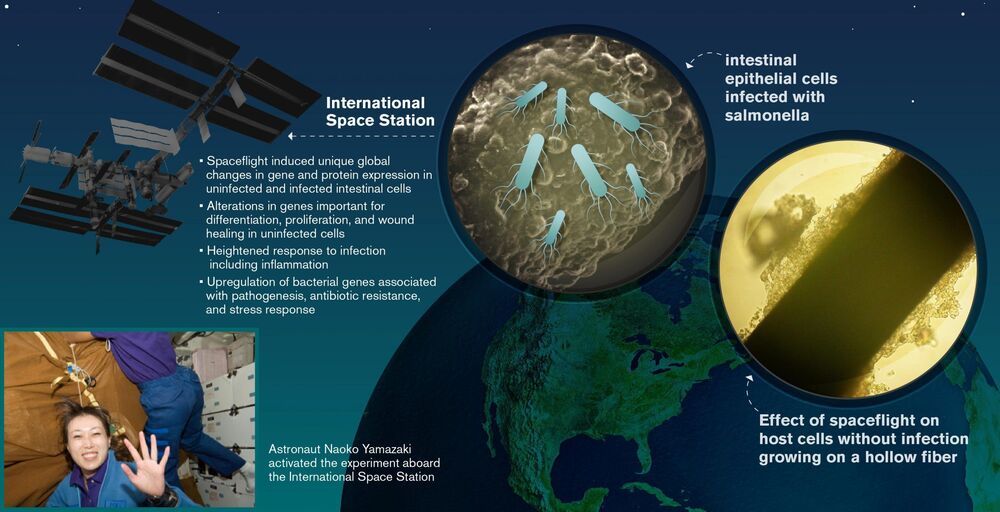“Before we began this study, we had extensive data showing that spaceflight completely reprogrammed Salmonella at every level to become a better pathogen,”
Astronauts face many challenges to their health, due to the exceptional conditions of spaceflight. Among these are a variety of infectious microbes that can attack their suppressed immune systems.
Now, in the first study of its kind, Cheryl Nickerson, lead author Jennifer Barrila, and their colleagues describe the infection of human cells by the intestinal pathogen Salmonella Typhimurium during spaceflight. They show how the microgravity environment of spaceflight changes the molecular profile of human intestinal cells and how these expression patterns are further changed in response to infection. In another first, the researchers were also able to detect molecular changes in the bacterial pathogen while inside the infected host cells.
The results offer fresh insights into the infection process and may lead to novel methods for combatting invasive pathogens during spaceflight and under less exotic conditions here on earth.










Comments are closed.